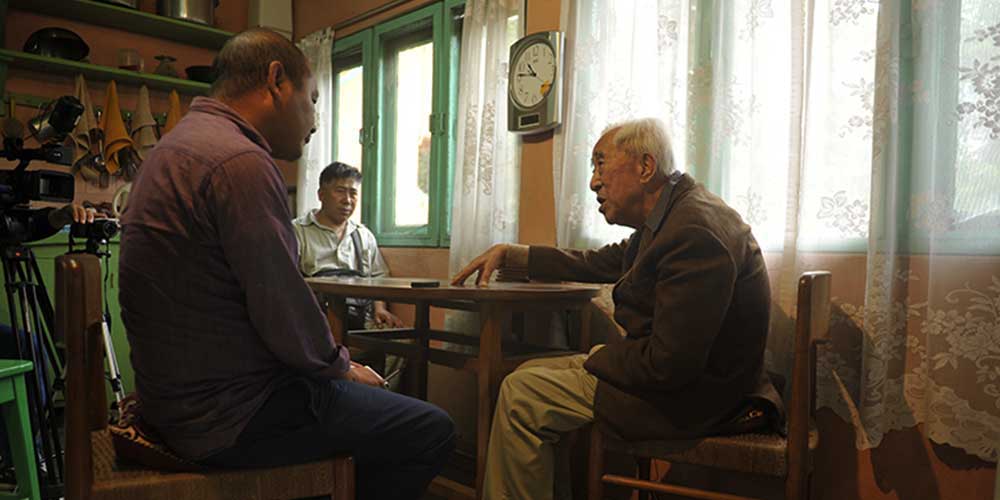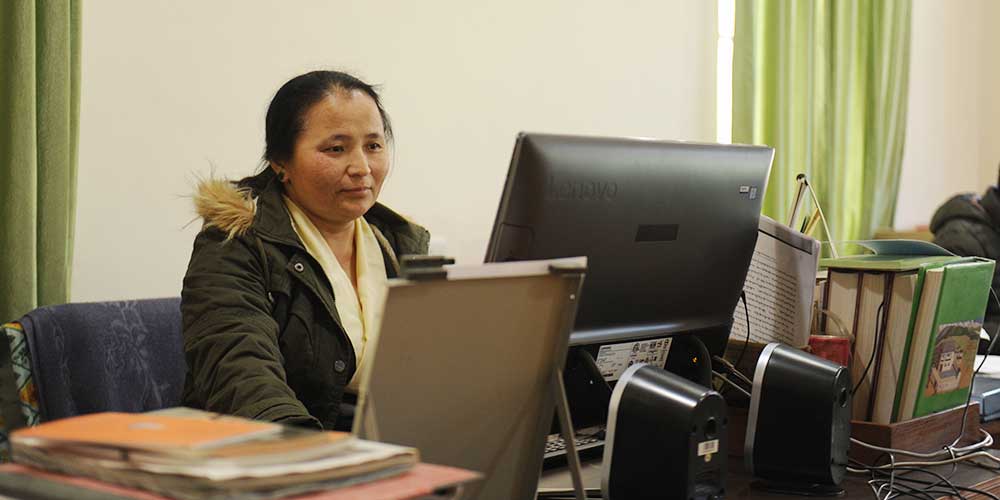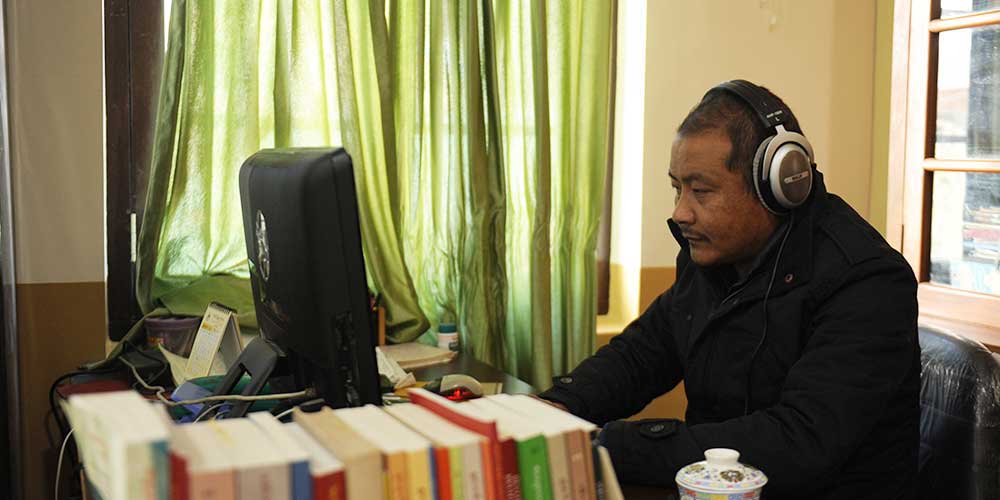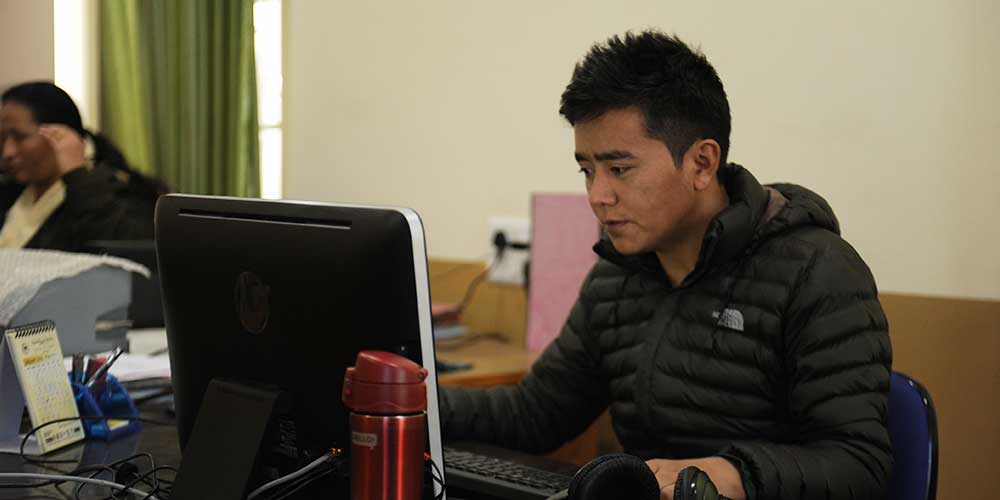Oral History
As a consequence of the Chinese invasion of Tibet in 1959, most of the religious, political, racial, historical and traditional as well as cultural aspects of Tibet have been degenerated at various levels. Vital and significant links to a precious and rich ancient knowledge stored in the minds and memories of the learned, scholars, intellectuals and experienced Tibetan elders are being lost due to their demise or being aged. Faced with such dangers of a gradual disappearing Tibetan cultural identity, the Library has deliberately instituted an Oral History Project in 1976 with a supreme visionary consideration to preserve and sustain the Tibetan religious and history so that the unique morals, traditional and customary ideals on various themes innate in the minds of our knowledgeable may be collected and recorded simultaneously. To maintain and preserve the rich and unique Tibetan culture and pass on its traditional ways and means to the younger Tibetan generation, the department has conducted and recorded hundreds of hours of interviews with elders, religious figures, craftsmen, doctors, astrologers, retired civil servants and military personnel, village heads, former aristocrats, political prisoners, story-tellers, traders, pilgrims and so on while priority is given to record the oral accounts of older senior citizens. Responsibilities of the department do not confine to interview recordings only. It is also responsible for transcription, compilation, research, editing and publication of the undocumented oral resources. The project has collected more than 400 audio cassettes and video recordings for filing and resourcing to accomplish the purpose. To make these resources available for research works for future generations, we have transcribed, compiled and edited from those of earlier materials or resources over the course of time, and published 48 Oral History Series book covering multiple subjects on Tibetan culture, history, geography, language and literature, polity and politics, art, etc. These resources have no doubt enhanced and enriched the multiple characteristics of a live culture and served as an invaluable source of reference and knowledge for future generations. Publication of any particular oral history hinges on several factors like significance and importance of the resource materials and availability of time and fund. For more information on oral history publications please have a look on catalogue.Oral History Catalogue
Note:- Books published by the Oral History Department are only in Tibetan.
- You can check their availability through online catalogue by entering the name of the narrator or book series number.
- In English
- In Tibetan
Department Members
Ms. Tsewang Bhuty
Department Head
oralhistoryhead@tibetanlibrary.org
Mr. Tashi Tsering
Dy. Editor
Mr. Kunchok Gawa
Asst. Editor
Mr.Tsetan Norbu
Asst. Editor
Ms. Jampa Choezom
Asst. Editor
 Library of Tibetan Works and Archives The Library of Tibetan Works and Archives is a Tibetan library in Dharamshala, India.
Library of Tibetan Works and Archives The Library of Tibetan Works and Archives is a Tibetan library in Dharamshala, India.









